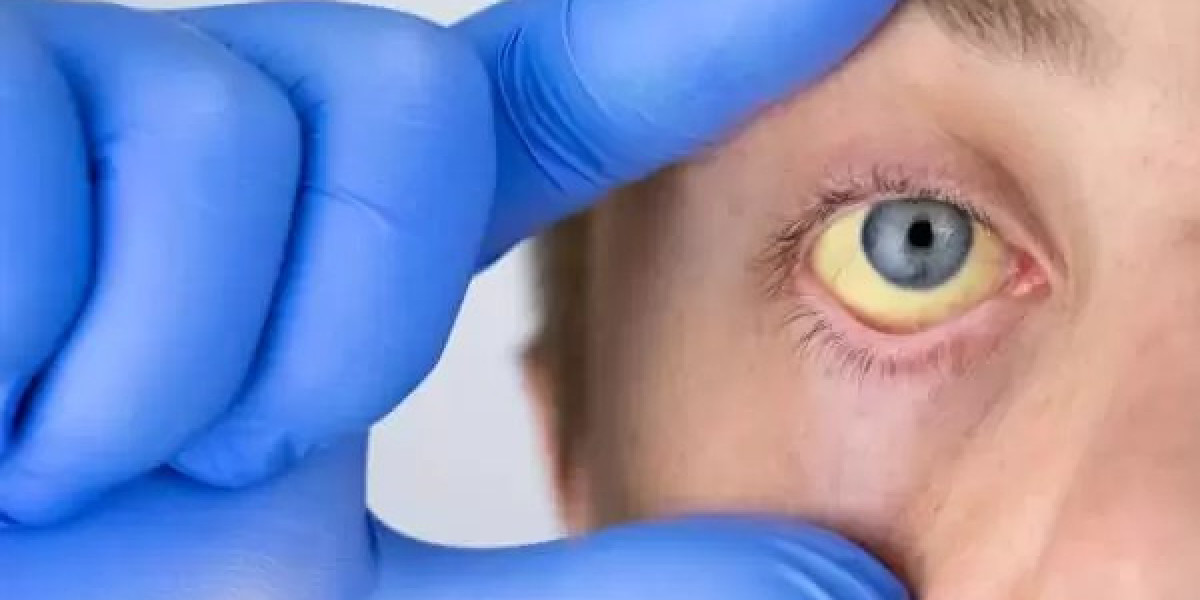Anemia is a disease that affects millions of people worldwide and is characterized by a deficiency of red blood cells or hemoglobin in the blood. This condition can lead to fatigue, weakness, and various other health complications if not treated effectively. At Kaizen Gastro Care Clinic, Dr. Vikrant Kale, a renowned gastroenterologist in Pune, offers comprehensive and personalized anemia treatment to help you regain your health and vitality.
Dr. Vikrant Kale provides anemia treatment in Pune, Maharashtra, with a deep understanding of the complexities of anemia and its various underlying causes. With his expertise, Dr. Kale provides tailored treatment plans that address the symptoms and root causes of anemia, ensuring effective and long-lasting results.
If you are experiencing symptoms of anemia or are concerned about your health, we encourage you to schedule an appointment with Dr. Vikrant Kale at Kaizen Gastro Care Clinic. Our team is dedicated to providing you with the highest level of care and support throughout your treatment journey.
What is anemia?
Anemia is a disorder where your blood doesn’t have enough healthy red blood cells or hemoglobin. These cells are crucial for carrying oxygen to your body’s tissues. This deficiency can lead to fatigue, weakness, and a range of other health problems. Anemia can result from different reasons, including nutritional deficiencies, chronic disorders, or genetic conditions.
What Are The Types of Anemia?
There are several types of anemia, each with different causes and treatment approaches:
- Iron-Deficiency Anemia: The most common form of anemia, is caused by a lack of iron, which is required for hemoglobin production. This type often results from insufficient dietary intake, chronic blood loss, or increased iron demand during pregnancy.
- Vitamin-Deficiency Anemia: This includes megaloblastic anemia, caused by deficiencies in vitamin B12 or folate, leading to the production of abnormally large red blood cells.
- Aplastic Anemia: A rare but severe condition where the bone marrow fails to produce enough blood cells, potentially caused by autoimmune disorders, exposure to toxic chemicals, or certain medicines.
- Hemolytic Anemia: Appears when red blood cells are destroyed faster than they can be produced. Causes include autoimmune disorders, infections, or hereditary disorders like sickle cell anemia.
- Chronic Disease Anemia: Associated with chronic diseases such as kidney disease, cancer, or rheumatoid arthritis, which interfere with red blood cell production.
- Sickle Cell Anemia: A genetic condition where red blood cells are abnormally shaped, leading to chronic anemia and other complications.
What are the symptoms of anemia?
The symptoms of anemia can vary depending on the severity and underlying cause but often include:
- Fatigue and weakness
- Pale or yellowish skin
- Shortness of breath
- Dizziness or lightheadedness
- Chest pain
- Irregular heartbeat.
- Cold hands and feet
- Headaches
If you experience any of these signs, it is important to seek medical attention for the right diagnosis and treatment plan.
What causes anemia?
Anemia happens when your blood doesn’t have enough healthy red blood cells. This can happen due to several causes:
Reduced Red Blood Cell Production:
- Iron deficiency: This is the most common cause. Iron is crucial for hemoglobin, the protein in red blood cells that carries oxygen.
- Vitamin B12 or folate deficiency: These vitamins are essential for red blood cell production.
- Bone marrow problems: Conditions like leukemia, lymphoma, or aplastic anemia can affect the bone marrow’s ability to produce red blood cells.
- Chronic diseases: Conditions like kidney disorder, cancer, or inflammatory bowel disease can interfere with red blood cell production.
Increased Red Blood Cell Destruction:
- Hemolytic anemia: This happens when red blood cells are destroyed faster than the body can replace them. It can be caused by autoimmune conditions, infections, or inherited conditions like sickle cell anemia.
- Inherited conditions: Sickle cell anemia and thalassemia are inherited diseases that lead to the breakdown of red blood cells.
Blood Loss:
- Acute blood loss:From injuries, surgery, or ulcers.
- Chronic blood loss:Heavy menstrual bleeding, gastrointestinal bleeding.
Other Factors:
- Pregnancy: Increased blood volume can lead to anemia if iron intake is insufficient.
- Medications: Certain drugs can contribute to anemia.
How Anemia is Diagnosed at Kaizen Gastro Care?
Accurate diagnosis is important for effective anemia treatment. At Kaizen Gastro Care Clinic, Dr. Vikrant Kale and his team use a comprehensive diagnostic approach, including:
- Detailed Medical History and Physical Examination: Understanding the patient’s medical history, lifestyle, and signs to identify possible causes of anemia.
- Complete Blood Count (CBC): This test calculates the levels of red blood cells, hemoglobin, and hematocrit in the blood.
- Iron Studies: To evaluate the levels of iron, ferritin, transferrin, and total iron-binding capacity (TIBC) in the blood.
- Vitamin Levels: Tests for vitamin B12 and folate levels to identify deficiencies.
- Reticulocyte Count: To evaluate bone marrow function and the production of new red blood cells.
- Bone Marrow Biopsy: In cases where bone marrow diseases are suspected, a biopsy may be performed.
- Additional Tests: Depending on the suspected cause, further tests like stool tests (to check for hidden blood loss), liver and kidney function tests, and genetical testing may be conducted.
What are the complications of anemia?
If left untreated, anemia can lead to several complications, which can affect various organs and systems in the body. Here are some of the potential complications of anemia:
- Severe tiredness: Severe anemia can make it impossible to do everyday tasks.
- Pregnancy complications. Pregnant women with folate deficiency anemia may be more likely to have complications, such as premature birth, low birth weight babies & increased risk of anemia in the baby.
- Heart problems. Anemia can lead to a fast or irregular heartbeat, called arrhythmia. With anemia, the heart must pump more blood to make up for too short oxygen in the blood. This can lead to an enlarged heart or heart failure.
- Death: Some inherited anemias, such as sickle cell anemia, can lead to life-threatening difficulties. Losing a lot of blood quickly generates severe anemia and can be fatal.
- Shortness of breath: Due to poor oxygen delivery to tissues
- Dizziness and lightheadedness: Caused by lowered blood flow to the brain
- Cold hands and feet: Poor circulation due to reduced red blood cells
- Paleness: Due to reduced oxygen in the blood
- Restless legs syndrome: In some chances
If you suspect you have anemia, it’s critical to consult with a gastroenterologist for diagnosis and treatment.
How is Anemia Treated at Kaizen Gastro Care Clinic?
Dr. Vikrant Kale is the best anemia specialist in Pune, Maharashtra, dedicated to providing personalized treatment plans tailored to each patient’s specific needs. The treatment approach for anemia may include:
Nutritional Therapy:
- Iron Supplementation: For iron-deficiency anemia, oral iron supplements are often prescribed to replenish iron stores. In severe cases, intravenous iron therapy may be required.
- Vitamin B12 and Folate Supplementation: For patients with vitamin-deficiency anemia, vitamin B12 or folate supplements can assist restore normal red blood cell production.
- Dietary Modifications: Including iron-rich foods such as lean meats, beans, lentils, and leafy greens into the diet can support treatment and control recurrence.
Medical Treatments:
- Erythropoiesis-Stimulating Agents (ESAs): Medicines that stimulate red blood cell production in the bone marrow, often used in anemia associated with chronic kidney conditions or chemotherapy.
- Blood Transfusions: In cases of severe anemia, blood transfusions may be required to quickly increase red blood cell levels and alleviate symptoms.
- Treatment of Underlying Conditions: Addressing the underlying cause of anemia, such as managing chronic diseases or discontinuing medications that contribute to anemia, is vital for effective treatment.
Advanced Therapies:
- Bone Marrow Transplant: In cases of severe aplastic anemia or certain genetic anemias, a bone marrow transplant may be considered to restore healthy blood cell production.
- Immunosuppressive Therapy: For autoimmune-related hemolytic anemia, immunosuppressive drugs can help lessen the destruction of red blood cells.
How To Prevent Anemia?
Dr. Vikrant Kale says that many types of anemia can’t be prevented due to genetic or chronic conditions. However, eating a nutritious diet might prevent iron deficiency anemia and vitamin deficiency anemias. A healthy diet includes:
- Balanced Diet: Consuming a diet rich in iron, vitamin B12, and folate can help control nutritional deficiencies that lead to anemia.
- Regular Check-Ups: Regular health check-ups and blood tests can help detect anemia early and manage it promptly.
- Managing Chronic Conditions: Proper management of chronic conditions can prevent anemia associated with these conditions.
- Avoiding Excessive Blood Loss: Managing heavy menstrual periods or gastrointestinal bleeding through medical intervention can prevent anemia caused by blood loss.
- Regular Exercise: Engaging in mild physical activity to improve circulation and increase energy levels.
Why Choose Kaizen Gastro Care for Anemia Treatment in Pune?
At Kaizen Gastro Care Clinic, patient care is prioritized, and Dr. Vikrant Kale and his team are dedicated to providing compassionate and comprehensive treatment for anemia. The clinic offers:
- Expertise and Experience: Dr. Vikrant Kale is a highly experienced gastroenterologist and hematologist with a deep knowledge of anemia and its underlying causes. His expertise in diagnosing and treating various forms of anemia ensures that patients receive the highest standard of care.
- Comprehensive Care: At Kaizen Gastro Care Clinic, we provide a holistic approach to anemia treatment, focusing on managing the root cause of the condition and improving overall health. Our state-of-the-art facilities and state-of-the-art diagnostic tools enable us to offer accurate diagnoses and effective treatment plans.
- Patient-Centered Approach: We prioritize patient education and empowerment, ensuring that patients understand their condition and treatment options. Dr. Vikrant Kale takes the time to listen to patients’ concerns, answer questions, and develop personalized treatment plans that align with each patient’s unique needs and goals.
- Cutting-Edge Treatments: Kaizen Gastro Care Clinic is dedicated to staying at the forefront of medical advances. We offer the latest treatments and therapies for anemia, ensuring that patients have access to the most effective and innovative care available.
- Ongoing Support: Providing continuous support and follow-up care to monitor the patient’s improvement and adjust treatment plans as required.
- Convenient Location: Located in Pune, Kaizen Gastro Care Clinic provides easy access to high-quality anemia treatment for residents of Pune and the surrounding areas. Our clinic is equipped with modern facilities and a welcoming atmosphere to ensure a comfortable and positive experience for all patients.
Request a Call Back:
If you are experiencing symptoms of anemia or have been diagnosed with the condition, schedule a consultation with Dr. Vikrant Kale at Kaizen Gastro Care, the best gastroenterology clinic in Pune to receive personalized and compassionate care tailored to your needs.
For more information about anemia treatment or to schedule a consultation with the best gastroenterologist & hepatologist Dr. Vikrant Kale, contact Kaizen Gastro Care Clinic in Pune today. Call us at 9763635252 or Book an online Appointment.
Take the first step towards better health and wellness with expert care and support.







